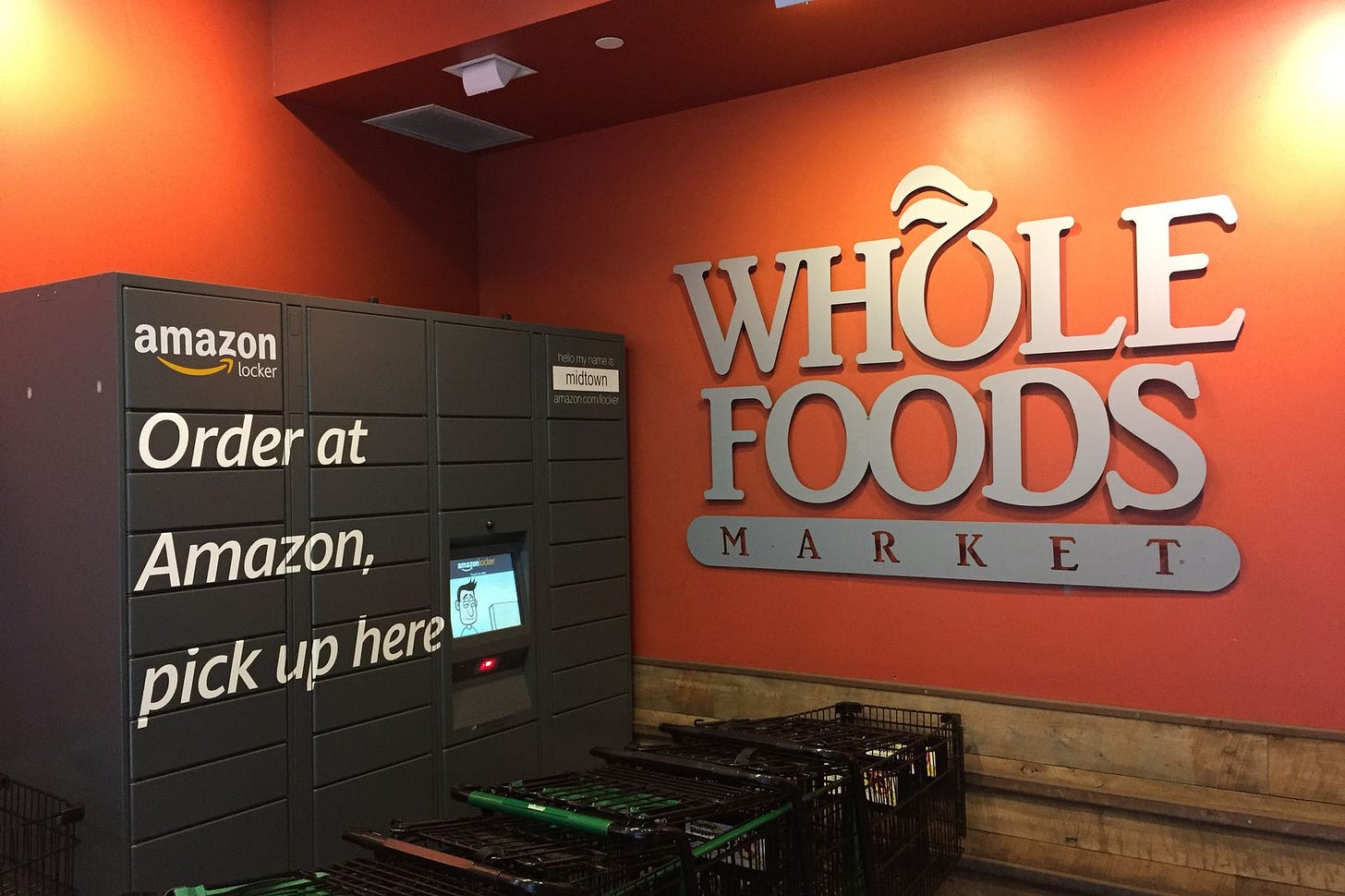I have seen the end of the world. It looks like Amazon Prime shoppers taking over Whole Foods.
It is a strange feeling to realize you're the only person in the aisle shopping for yourself.
One of the more dystopian images ingrained into my mind from the last seven months happened in the dairy aisle. As I sifted through the yogurt selections looking for my favorite Siggi’s flavors — peach and strawberry, thank you — I realized I was the only person shopping for myself in the entire section. I was surrounded by these distant-looking figures wearing black Amazon Prime t-shirts and staring down at their iPhones. They were systematically making their way through the store, as if they were programmed to grab cage-free eggs and nutty gruyère.
And in many respects, they are.
Online grocery sales are booming, but somebody must still do the shopping. That’s where the Prime shoppers come in. They go to the grocery store on behalf of their customers, checking items off as they move from aisle to aisle. Last month, Business Insider reported on the epidemic, quoting one Whole Foods employee who called the Prime shoppers “vultures.” The employee complained of them ransacking shelves before they can be restocked, and failure to socially distance.

It is wrong to demonize the Prime shoppers. In a cratering economy, they are just trying to find work any way they can. Uber driving is out, and Prime grocery shopping is in. I have thought of doing it myself, until I realized I still have trouble finding chicken broth.
But the very existence of these human grocery shopping robots is apocalyptic. With the vast majority of white-collar workers still working remotely, and perhaps doing so indefinitely, there are even fewer chances for any sort of human interaction between rich and working people. One of the last bastions of fleeting contact was the grocery store, and now that’s gone, too.
Our society is divided into two social groups: one set of people assumes all of the risk to wait on the people who make their livings behind laptop screens. Everything can be delivered to your doorstep. There is no reason to ever leave your luxury Ink Block condo.
This permanent separation can only be disastrous for our empathy gap, because it is hard to empathize with those whom you can’t see. There is an unspoken reason why socialism is so widely embraced in Scandinavian countries: most of the people look alike. These are small and homogeneous countries. Native Norwegians comprise 83 percent of the population in Norway; roughly 80 percent of Sweden’s inhabitants were born in the country.
People have empathy when issues directly affect them or those for whom they care. Nancy Reagan was pro-stem-cell research, Dick Cheney has expressed support for same-sex marriage, and most recently, Donald Trump received a Covid treatment that was tested in cells derived from fetal tissue. The same applies for issues such as universal healthcare and even Covid stimulus. If you aren’t struggling, and never interact with anybody who’s struggling, the problem doesn’t seem as urgent.
Obviously, a couple of trips through the Whole Foods checkout line is not going to turn an innovation prick into Mother Theresa. But the Amazon Prime shopper is emblematic of a larger trend. We don’t do anything together anymore, even something as tedious as blindly wandering through Bed Bath & Beyond. Now, that couch cushion can just show up on your doorstep — while the Amazon truck is double-parked outside and holding up traffic.
All the while, Jeff Bezos’ net worth continues to skyrocket. U.S. billionaires have seen their wealth rise by almost $1 trillion between March and October, while Bezos remains the richest.
One of the phonier platitudes offered at the onset of the pandemic is that we are in this together. That has turned out to be a ridiculous notion. Covid has only accelerated our vast divide, and the Amazon Prime shoppers are here, ready to have their QR codes scanned so they can hand-deliver your packaged chipotle aioli.



